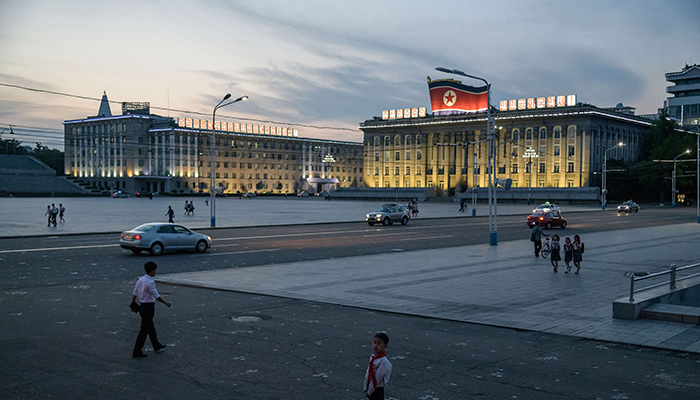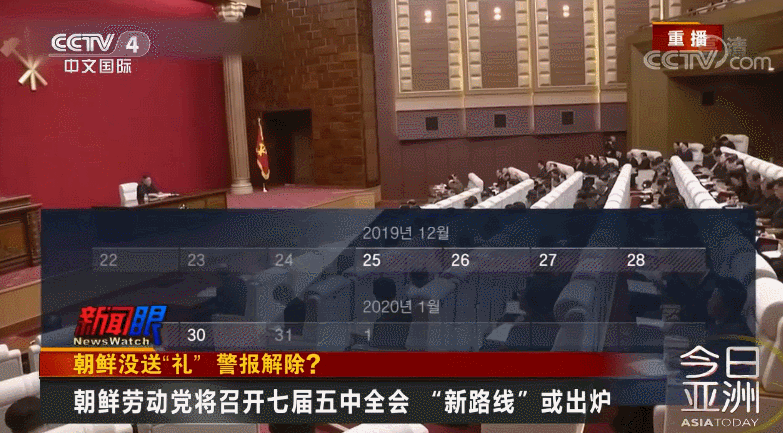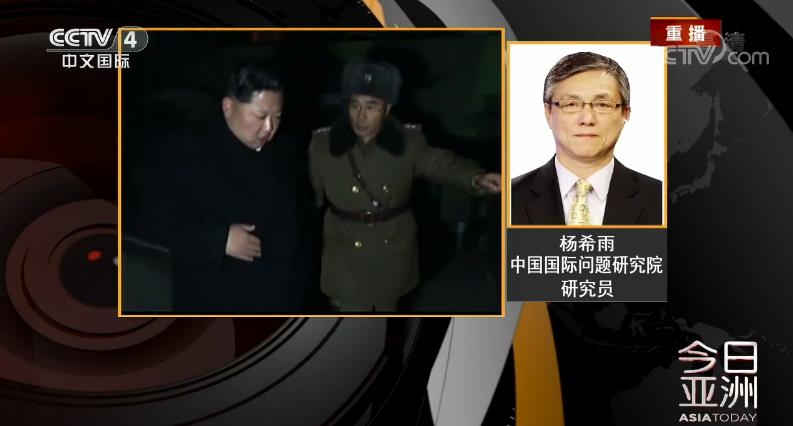Will the DPRK return to the route of "parallel economy and nuclear weapons"? What does the "new route" value more?
CCTV News: The Korean Peninsula spent 25 days peacefully. So, has North Korea’s "Christmas gift" warning to the United States been lifted? In the coming week, can the DPRK and the United States usher in a turning point from "confrontation" to "dialogue"?

December 25th is the day when North Korea proposed to send a "Christmas gift" to the United States. However, on the same day, North Korea showed no signs of launching long-range missiles or satellites.
South Korea’s "Daily Economy" commented that North Korea did not take any special action on December 25, which may be due to a circuitous statement that it will continue to maintain the fire of the denuclearization process on the peninsula, or it may be that the DPRK wants to make a decision after observing the reaction of the United States.
The Japanese edition of Newsweek commented on the 25th that the game between the United States and North Korea is particularly dangerous.

On December 4th, North Korean officials announced that the fifth plenary session of the Seventh Central Committee of the Workers’ Party of Korea would be held in late December. The US and South Korean intelligence agencies generally believed that the "new route" proposed by North Korean leader Kim Jong-un against the United States at that time was expected to begin to take shape.
On the other hand, if the United States does not respond before the year-end deadline set by North Korea, Kim Jong-un may release important information through the New Year message on January 1, 2020.
Previously, in 2013, North Korea announced the decision of "economic construction and nuclear force construction simultaneously" through the plenary session of the Labor Party Central Committee;
In 2018, with the resumption of contacts between the DPRK and the United States, the DPRK began to adjust its tone. In April of the same year, it announced the decision to "suspend nuclear and missile tests" and "concentrate on socialist economic construction."
After the second "Golden Specialist Meeting" ended fruitlessly in February 2019, the Workers’ Party of Korea "discussed new directions and ways of struggle" at the Fourth Plenary Session of the Seventh Central Committee held in April, and decided to "further hold high the banner of self-reliance in socialist construction, develop an independent economy, and deal a heavy blow to hostile forces trying to bring North Korea to its knees with sanctions".
Also in April, Kim Jong-un, the top leader of North Korea, asked the US to come up with a new negotiation plan before the end of this year, otherwise the DPRK would take "another new road".
On December 22nd, North Korea’s official media reported that Kim Jong-un had hosted an enlarged meeting of the Labor Party in the Central Military Commission (CMC). The important issue is to strengthen independent national defense forces. In the next step, whether the DPRK will make a commitment to abandon the "suspension of nuclear and missile tests" and return to the parallel line of nuclear weapons and economic development will arouse outside attention.

Yang Xiyu, a researcher at China Institute of International Studies, said that it is impossible for North Korea to return to the route of "economy and nuclear weapons in parallel", not only politically, but also in the international environment. North Korea’s further economic development will not change because of the tension between the United States and North Korea. North Korea’s "new route" or paying more attention to strengthening the army, developing satellites and further improving missiles are the direction of North Korea’s next efforts.